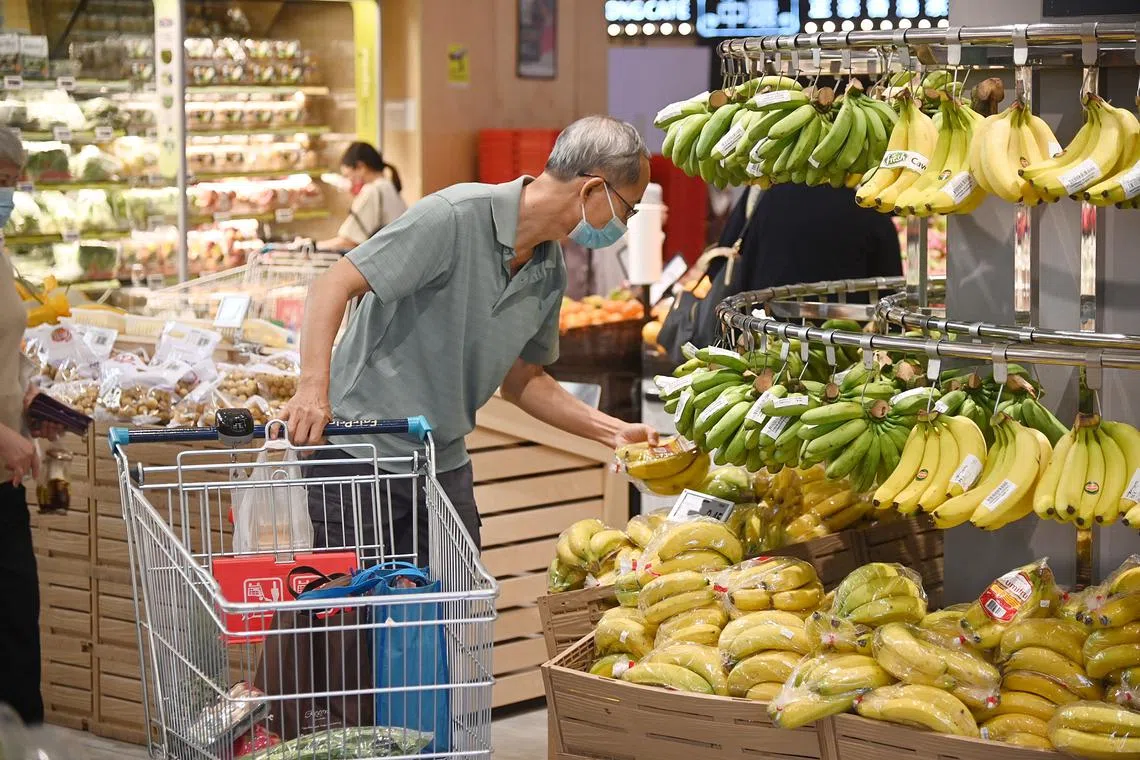‘Doomsday’ predictions over past GST hikes did not pan out: Murali Pillai
Sign up now: Get ST's newsletters delivered to your inbox

The GST will increase from 7 per cent to 9 per cent in two stages - one percentage point each time on Jan 1, 2023, and Jan 1, 2024.
ST PHOTO: DESMOND WEE
SINGAPORE - The PAP Government’s consistent approach of meeting Singapore’s fiscal pressures through a goods and services tax (GST) has broadened its tax base while keeping the city-state competitive, said Mr Murali Pillai (Bukit Batok).
Conversely, history has shown that while the Workers’ Party has always objected to the GST and argued that the tax would leave lower-income earners worse off, such doomsday predictions did not materialise, he added.
Speaking during the debate on the GST (Amendment) Bill on Monday, Mr Murali recounted the key chapters in the history of GST here, starting from its introduction in 1993.
Then, Singapore’s economy was strong and its people were young, and it was already felt that GST was needed for the long term given that direct tax made up 60 per cent of the city-state’s tax revenue and there was a need to diversify such revenues for greater stability.
The WP had strenuously objected to the GST’s introduction and argued that such a tax was regressive. The People’s Action Party responded by recognising possible shortcomings and introduced GST offsets for low-income households, said Mr Murali.
The result was that corporate and personal income tax rates came down even though tax revenues did not, and social spending that benefited the poorest went up, he said.
“Today, when we are older and the economy is struggling, it turns out that our 1993 decision was correct,” said Mr Murali.
In 2003, when Singapore was still recovering from the 1997 Asian financial crisis and the 2001 recession and had to contend with Sars, its economy was struggling and the Government decided to raise GST progressively from 3 per cent to 5 per cent to help fund expenses.
The WP was once more against it, said Mr Murali, noting that its then leader Low Thia Khiang expressed concern about the impact on inflation and argued instead for an increase of the net investment income (NII) ceiling and higher property and sin taxes.
The result of the GST hike was that Singapore kept its fiscal discipline, turned in positive economic growth and improved Singaporeans’ livelihoods, said Mr Murali.
He noted that the WP had also objected to the 2007 increase of the GST to 7 per cent, and had called on the Government to get revenue from other areas, such as using more of the NII, land sales, corporate tax and stamp duties.
Yet what has happened since 2007 is that Singapore managed to achieve broad-based social uplift: jobs, homes and rising incomes for all, as well as quality schools and public healthcare, he said.
“The Government is not perfect. But by and large, the doomsday predictions of the poor becoming poorer owing to GST hikes simply did not happen,” said Mr Murali.
Set against this historical context, there is nothing significantly new in what the WP has suggested this time as alternative proposals to the GST for Parliament to consider, he said.
Pointing to a July article in the WP’s Hammer newsletter against the GST hike that said political courage means being able to recognise that contrary arguments have merit even if they come from political opponents, Mr Murali said the statement applies both ways.
“Rhetoric for effect seldom helps. Political courage commands a price, but mere talk of political courage is cheap,” he said.
The PAP is not so naive as to think that the GST will gain it political favour, and yet it is asking this of Singaporeans because of the “hard, immovable economic and fiscal realities”, he said.
“We ask this at this difficult time, because we truly believe that it will give us a fairer and more progressive way of financing our government, and build a stronger foundation for our nation,” he said. “That is political courage.”
Other PAP MPs also spoke in support of the Bill, but questioned how the increase in revenue will be redistributed to those who need it most.
Ms Jessica Tan (East Coast GRC) asked if means-testing for GST vouchers can be further calibrated to help certain groups.
She suggested that criteria be tweaked to include those living with extended family members in private homes but do not own the property, and for a threshold with a lower cash payment for retirees that own property but require support.
Mr Saktiandi Supaat (Bishan-Toa Payoh GRC) asked if the Government conducts regular reviews to assess the need to raise the per capita income threshold so more households can qualify for permanent GST vouchers.
Meanwhile, Ms Joan Pereira (Tanjong Pagar GRC) asked if the Government would consider higher MediSave top-ups for seniors.
Earlier on Monday, Deputy Prime Minister Lawrence Wong announced in Parliament that there will be a $1.4 billion boost to the support package for households
The GST will go up by one percentage point from 7 per cent to 8 per cent
A recurring point during the debate was how much of the reserves the Government should be able to draw on.
Mr Murali and Mr Sitoh Yih Pin (Potong Pasir) both said the current framework that lets the Government spend up to 50 per cent of the net investment returns on net assets invested by GIC, the Monetary Authority of Singapore and Temasek is equitable, as it leaves half aside for the future.
Both called for the Government to continue saving more than less, given that it is impossible to predict future emergencies and spending needs.
“If somebody says he knows, he’s probably a snake oil salesman,” said Mr Murali.



